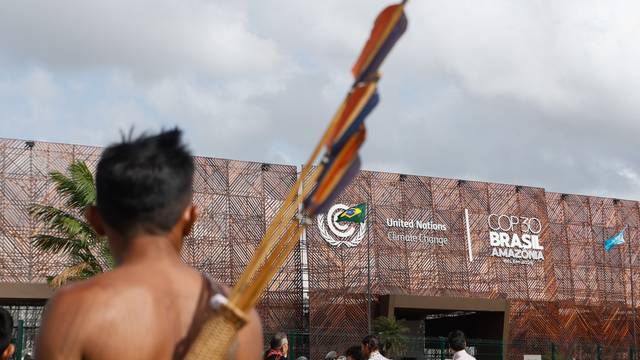
By Amy Goodman & Denis Moynihan
BELÉM, BRAZIL–The Amazon rainforest, often described as the lungs of the planet, is teeming with life. Thousands of Amazonian land defenders, both Indigenous people and their allies, have traveled to the tropical city of Belém, Brazil, the gateway to the Amazon, carrying their message that the rainforest is at a tipping point, but can still be saved.
Their focus is on COP30, the 30th Conference of Parties to the United Nations Framework Convention on Climate Change (UNFCCC), the official body created after the 1992 Rio Earth Summit to negotiate and implement a global treaty to limit human-caused global warming. Thirty-three years later, the negotiations stagger forward at far too slow a pace than what is needed to avert catastrophic climate disaster.
That became apparent as the conference wrapped up its first week. Hundreds of activists arrived on several caravans and river-borne flotillas in advance of a major civil society march. On Friday night, an Indigenous-led march arrived at the perimeter of the COP’s “Blue Zone,” a secure area accessible only to those bearing official summit credentials. The group stormed security, kicking down a door. United Nations police contained the protest, but it was a marker of the level of frustration at the failure of the deliberations to deliver just and effective climate action.
Alessandra Korap Munduruku, president of the Pariri Indigenous Association, was a leader of the protest. In 2023, she was awarded the prestigious Goldman Environmental Prize for her leadership and organizing, forcing British mining giant Anglo American to withdraw from Indigenous lands, including those of her people.
“It was very difficult for our people who had traveled for so long to get here, and the people wanted to be heard,” Alessandra said on the Democracy Now! news hour, speaking inside the COP. “We came in a large delegation, and we wanted to speak, and we wanted to be heard, but we were blocked. I have credentials to enter COP, but many of the Munduruku who are here do not, and so we decided that we needed to stop this COP. We needed people to stop and to listen to us…because we are the ones that are saying what the forest is demanding. We are the ones that are saying what the river is asking for.”
Close to 190 nations sent delegations here to hammer out a roadmap to phase out fossil fuels. Noticeably absent is the United States. President Donald Trump refused to send an official delegation, a first for the US. Trump calls climate change a “con job” and has ordered the US to withdraw from the Paris climate agreement. Jean Su of the Center for Biological Diversity responded to the US’s absence at COP, saying on Democracy Now!, “People should celebrate the fact that that obstruction is not here, and pass as fast as possible mechanisms like a fossil fuel phaseout roadmap, where the U.S. is not here, but they could be bound by it later.”
The US is the historically largest greenhouse gas emitter on the planet. Now that urgent action is needed to reverse the damage already done, the US backs out. When asked at COP30 if he thinks Trump might rejoin the talks, UN Secretary General Antonio Guterres replied, “Hope is the last thing to die.”
It will take more than hope to save the Amazon rainforest. Sônia Guajajara is Brazil’s first ever Minister of Indigenous Peoples.
“Beyond forests, people need to understand that we have culture, we have people, and we have a diversity of people that protect the Amazon,” Minister Guajajara said on Democracy Now! during COP30. “It’s important that the world know that it’s not only forests and animals that live in the Amazon. There are people living there, people that are being attacked, assaulted. They’re having their rights violated, and they need protection.”
One important outcome Guajajara is working on at the COP30 negotiations is the recognition of the rights of Indigenous people: “We are expecting the recognition of Indigenous territories and the demarcation of these territories as a climate policy, one of the most efficient solutions to confront the climate crisis.”
Demarcation is the first, difficult step in Brazil to protect traditional Indigenous territories from exploitation by extractive industries like logging, mining and land clearing to make way for cattle ranching. Days after the COP30 protest led by Alessandra Korap Munduruku, her territory and nine others were finally demarcated, a hard-won victory that took years of struggle.
This year’s UN climate summit has the greatest number of accredited Indigenous people in attendance than ever before, nearing 1,000. Among the forces they are up against are over 1,600 fossil fuel industry lobbyists also in attendance. Who wins will determine the fate of the Amazon, and of the planet itself.

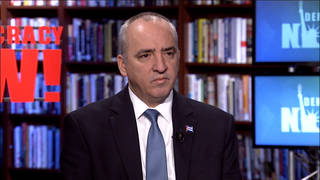
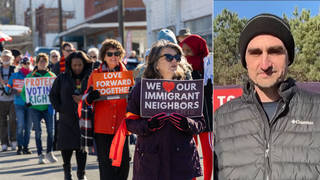
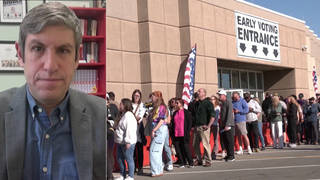
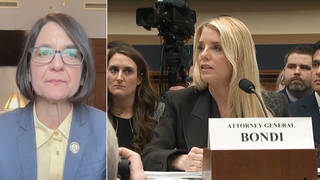







Media Options